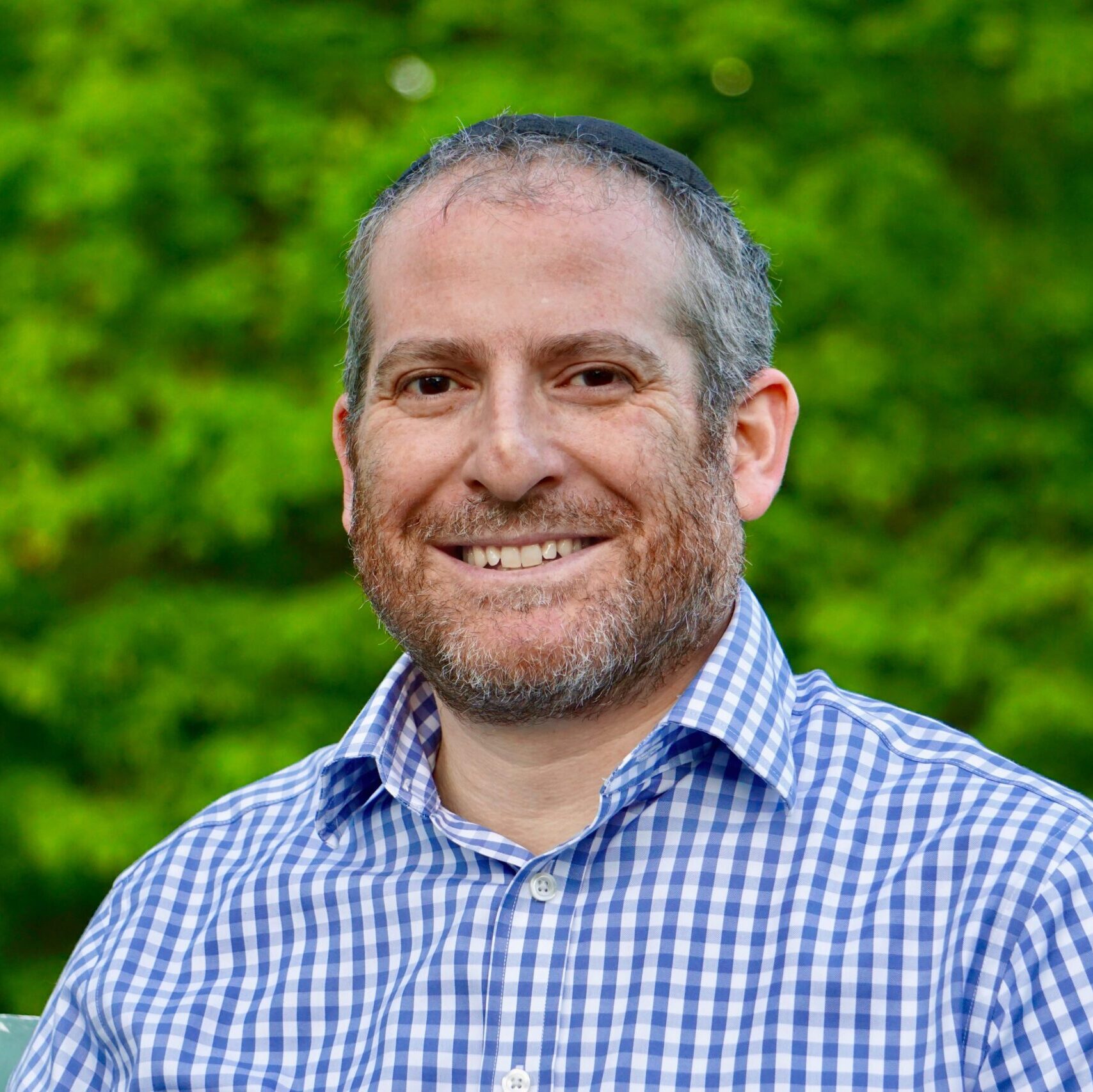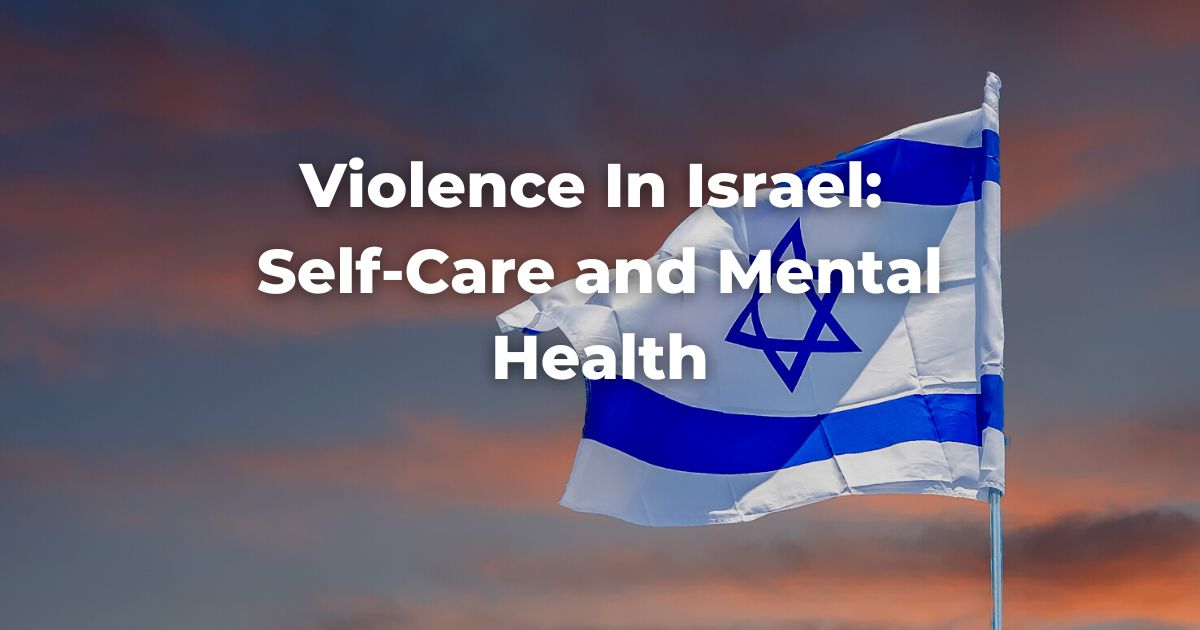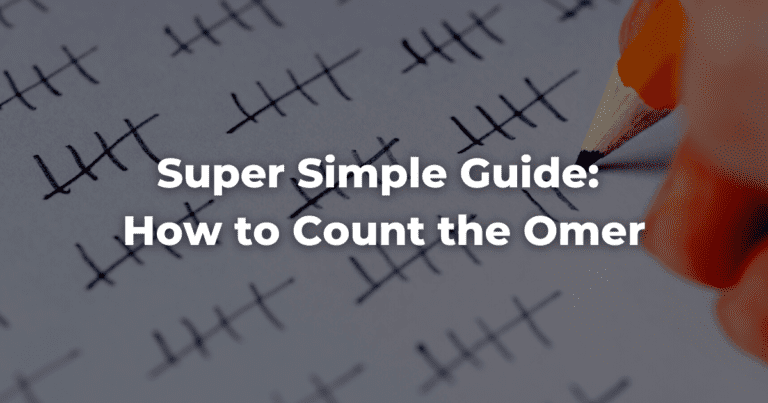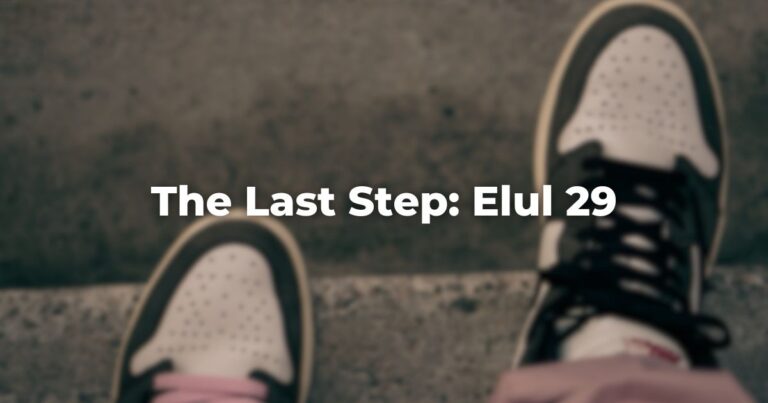As we watch the violence in Israel and Gaza on our TVs and devices, and the physical well-being of those impacted is in our minds, many of us in the Diaspora have strong feelings and intense memories from years past and our times in Israel. This is part of my story and a call to others to remind you that you are not alone.
While rare when I was a very young person, Israel trips, gap years, and vacations to the Holy Land are now standard, and many of us have been affected by terror there and in other locales. This is a bit of my story.
In 1991, I toured Israel on a “teen tour” composed half of Israelis and half of Montrealers—my hometown. A standout moment on that trip was our reflection circle at Beit Guvrin. We sat and talked about life for teens in Israel versus in the Diaspora. At one point, Avner, a Jerusalemite whose parents had emigrated from South Africa, called out tearfully, “You were walking around in your shopping malls, and we were locked in sealed rooms with gas masks on!”
The first Gulf War had passed just that winter, and Avner and the other participants were on their way to the army in the near future. Us Canadians were going back to Canada to continue our education. We were out of touch and misaligned—it was nobody’s fault; it was what it was.
But I realized then that I could never really understand.
In 1994, I dropped out of McGill University, and as the year turned to 1995, I departed to study at a Yeshiva in Israel. I landed in Efrat in Gush Etzion and began my studies amidst one of the fiercest waves of terror that Israel had experienced since the first Intifada.
A year later, Matthew Eisenfeld, a former student, and his fiancee, Sarah Duker, were eulogized in my Yeshiva. That sad day is my first memory of being personally touched by the conflict.
During my time living in Israel—about eight years between 1995 and 2004—Prime Minister Yitzhak Rabin was murdered, my Rosh Yeshiva (the dean of our seminary) was assaulted and narrowly survived, and there were shootings and rocks thrown at vehicles I traveled in. We had drills in the middle of the night to prepare for terrorist incursions. I raced a car through checkpoints and scary roads to bring my wife to deliver our first child in Jerusalem. One of my friends died in a security-related accident, and two classmates were murdered at Hebrew University. That day, I left early. It saved my life.
There were more incidents, countless days I can look back on and recollect the panic of being unable to reach my family or friends, the fear of travel, and the exhaustion of being on edge: memories of garbage trucks banging down dumpsters causing me to duck for cover; choosing seats that faced doors, identifying exits and weapons, and being ready; vigilant; and foolishly thinking I could ever avoid the terrible fates unfolding around me.
The bombing at Hebrew University was a transition moment in my life.
I got by for about a month and then started to break down. I had extreme anxiety. Anger would flare at the drop of a hat. I had so many physical symptoms and absolutely no physical health issues. Midnight trips to the emergency room and self-medication to sleep or to wake, I was falling apart and taking my marriage and one-year-old son with me.
Thanks to an anonymous benefactor, all students at Pardes—where I was studying alongside the victims of the Hebrew University bombing—were offered counseling or psychiatric support. I learned about Somatic Healing trauma and Post Traumatic Stress Disorder. I learned how to get through moments of panic and to slow down in times of distress. I relearned my body and found a way to cope with the day-to-day violence and fear that were hallmarks of our life in Jerusalem.
I read books that made a big difference in my life: Waking the Tiger: Healing Trauma, by Peter A. Levine, Man’s Search for Meaning by Victor Frankl, and Peace is Every Step by Thich Nhat Hanh.
But most importantly, I learned that I wasn’t alone.
Recent social changes, such as the #MeToo movement or the It Gets Better Project, have opened the gates to other forms of sharing and support. In many communities, people can share their mental health struggles and find empathy and support where once they suffered in silence.
(See also: The Body Keeps the Score by Bessel Van Der Kolk on the history and struggle to include PTSD as a legitimate diagnosis in the Diagnostic and Statistical Manual, a reference book on mental health conditions.)
One community in particular that I find helpful is on Facebook.
Mental Health in the Jewish Community is a group that shares resources and has a cultural idiom sensitive to Jewish life’s rhythms and experiences. Another helpful resource for those seeking traditional rabbinic ideas is a recent volume by Rabbi Yonatan Rosensweig and Doctor Shmuel Harris called Nafshi b’She’alati; a collection of sources and responsa on the intersection of mental health and Jewish law. The book is only in Hebrew and based on questions that Rabbi Rosensweig has been asked as an Orthodox rabbi.
This past Saturday night, I got sketchy details about the violence unfolding in Israel and Gaza. I reverted to old feelings and was very unsettled. I used some of my tools. I spoke with a police officer across the street, who gave me some information. I spoke to my wife and children and was clear about my discomfort. The next day, on Simchat TorahRefers to the first five books of the Hebrew Bible, the Tanakh, also called the Five Books of Moses, Pentateuch or the Hebrew equivalent, Humash. This is also called the Written Torah. The term may also refer to teachings that expound on Jewish tradition. Read more, I took extra care of myself, making sure I didn’t fall into old habits as I waited for the stars to emerge so that I could find out the whole story.
If you find yourself in distress at this time, try and focus on some of the simple things—sometimes so obvious we forget them—that are fundamental to staying as balanced and healthy as possible: drink enough water, eat regularly even if your appetite flags, sleep enough, and rest when you need to. If it helps you and you have someone to hug, get hugs. Take walks. Communicate with the people around you that you are preoccupied with the situation in Israel and Gaza—let them know.
All those who are shouldering grief and the support needs of their families, communities, friends, and selves: please remember that you have people who love and support you. Find a havrutaA study partner. A hevruta is more than just a ‘study buddy’ it is a serious and personal relationship between colleagues. Also spelled: Havruta Read more, a learning partner, with whom you can check in regularly—like daily—to bounce ideas, speak openly, and protect yourself from burnout. Try and choose a person who is not your spouse or partner but someone in a different community with whom you can speak openly without jeopardizing the confidentiality of your folk.
Finally, consider your conversations with God in whatever way you understand that. You can be angry or sad; nervous or seeking; doubting or leaning on; praying to or praying with; meditating or learning. Find a way to make a little room for the Blessed Holy One.
Author
-

Rabbi Mordechai Rackover serves as Editor in Chief of Exploring Judaism and Director of Publications and Digital Engagement at The Rabbinical Assembly. He has a background in education, campus work, and the pulpit. Mordechai studied for nearly a decade in a number of Yeshivot in Israel and has a BA in Jewish Studies from McGill University and an MA in Jewish Communal Leadership from Brandeis University. When not working he can be found reading or cooking and occasionally catering. Check out his Instagram for mouthwatering shots.
View all posts




